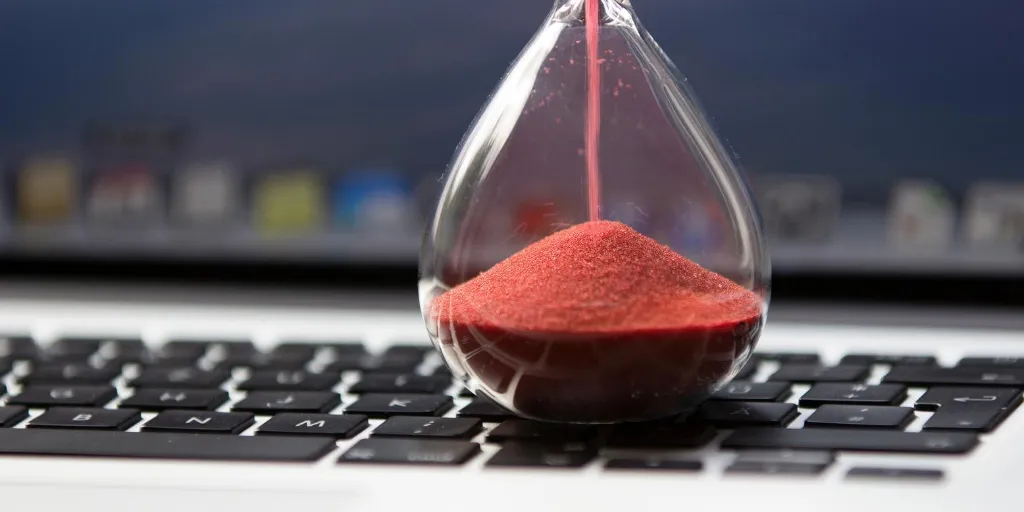SOLVED: How to Speed Up a Slow Computer

Key Takeaways
Few things are worse than dealing with a computer that loads like it's back in dial-up internet days. With so many variables to consider, finding the root cause of a computer's painfully slow speeds can be tedious at best, and near impossible at worst. To avoid some of the guesswork involved, here are some things you should check and ways to fix common culprits of computer slowness.
Open Your Task Manager
To open your Task Manager, right-click on your taskbar, then choose "Task Manager" from the options list. This feature provides details about programs and processes running on your computer, including those that have stopped responding or using many of your resources. If you find a task that has crashed or is using too many resources (usually these are highlighted in red), choose "end task".
Slowness Due to Antivirus Scans
You may notice that your antivirus software is among the most resource-heavy applications on your computer, causing significant slowness. This is because it runs frequent scans to see what threats were allowed onto your computer so that they can attempt to remove the threat. Slowness due to antivirus scans can be resolved in one of two ways:
- Open your antivirus settings, and schedule system scans for times you're not likely using your PC, such as overnight or during your lunch break.
- Or, switch to browser protection which works within your browser to stop threats BEFORE they reach your computer. These run 24/7 without & slowdowns because they operate within your browser instead of using valuable computer resources.
{{component-cta-custom}}
Review Your Startup Programs
If your computer takes forever to boot up, you most likely have too many apps trying to run at the startup. This creates a huge strain on your computer. For example, many gaming clients are automatically added to the startup programs when installed. If you play multiple games, you might have numerous gaming clients trying to open simultaneously. Instead, remove these from your startup programs and activate them when you're ready to play a game. The same applies to any other startup program. Evaluate what actually needs to be opened automatically when you start the computer and which ones you can manually open when required.
To see what apps begin running when you boot your computer, visit the Startup tab of your Task Manager. Then, to remove those you don't need upon startup, click on the app's name and select "Disable".
Close Running Apps When You're Done
If you aren't using an app or program, there's no need to keep it running where it'll cause slowdowns to everything else on your computer. After you close unused apps, make sure they aren't running by checking your notification tray next to the WiFi and volume indicators. When you close out of some apps and programs, such as Slack, they continue running in the background, which doesn't do any good for a slow computer.
Pause OneDrive Syncing
This is something that even Microsoft admits can slow your computer. OneDrive works by frequently scanning your computer for new or changing files so that it can update the records saved on OneDrive. If you aren't using OneDrive at all, you can disable it altogether. If you do use OneDrive, pause OneDrive Syncing until there are actually changes to sync to avoid unnecessary slowness. To do this, click on the OneDrive icon in your notification tray, select More and then Pause syncing.
Resolve Browser Overload
If you're a chronic New Tab Opener or have multiple windows open, each window and tab takes up memory and processing power contributing to computer slowness. Closeout of any tabs that you aren't actively using or consider saving frequently used tabs as bookmarks that you can easily open at the time that you're ready to use the site.
Certain browser extensions can also contribute to slowness, so ensure that you are only keeping those you actively use. To see which tabs and extensions contribute to your Chrome browser's slowness, launch your task manager by pressing Shift+Esc while using Chrome, or click on the menu button > More Tools > Task manager.
Delete Temporary Files
As your computer runs, temporary files are stored on your hard drive. Deleting those files can help improve your computer's performance. To do this, type "Disk Cleanup" on your Windows search bar to open the cleanup program. Select the drive you want to clean and then press OK.
Turn Off your Computer
Turn your computer off all the way when not in use. Don't just restart it every once in a while. This gives your computer a chance to clear out memory so that you can start fresh the next time you boot your computer.
{{component-cta-custom}}








